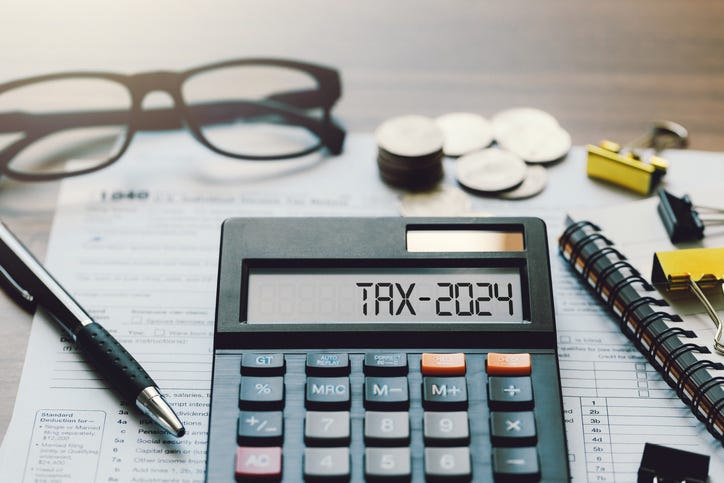
Next Monday is the April 15 federal income tax filing deadline. With less than a week to go, about one-third of taxpayers have yet to file their taxes.
If you're one of those people who have fallen into the temptation of procrastination, don't worry. There's still plenty of time to get your taxes filed and keep your sanity in tact -- here's how.
First, gather your tax records including:
• Forms W-2 from your employer
• Forms 1099 from banks, issuing agencies and other payers including unemployment compensation, dividends, pension, annuity or retirement plan distributions
• Form 1099-K, 1099-MISC, W-2 or other income statement if you worked in the gig economy
• Form 1099-INT if you were paid interest
• Other income documents and records of digital asset transactions
• Form 1095-A, Health Insurance Marketplace Statement, to reconcile advance payments or claims Premium Tax Credits for 2022 Marketplace coverage
• IRS or other agency letters
• CP01A Notice with your new Identity Protection PIN
Now that you have all everything in order, the number one tip is to file electronically. It reduces errors as tax software does the calculations, flags common errors and prompts for missing information. The IRS says most people qualify for electronic filing at no cost and, when they choose direct deposit, receive their refund within 21 days.
The IRS offers a variety of free electronic filing options:
• Taxpayers with income of $79,000 or less in 2023 can use IRS Free File guided tax software now through Oct 15.
• IRS Free Fillable forms are available at no cost to taxpayers of any income level and provides electronic forms for people to fill out and e-file themselves.
• IRS Direct File pilot program is open to eligible taxpayers in 12 states to file their returns online directly with the government for free.
Taxpayers who owe taxes can avoid paying interest and some penalties by filing their tax return and, if they have a balance due, paying the total amount by the tax deadline.
Taxpayers who can't pay their tax bill by deadline shouldn't panic. The IRS has options available to help those who owe a tax obligation and can't pay all or part of it, such as short- and long-term payment plans. You can also apply for an offer in compromise, which lets taxpayers settle their tax debt for less than the full amount they owe in certain circumstances.
If you are unable to file your tax return by the deadline, you can apply for an extension, which gives you until October 15 to file a return. Note that extension requests are due by the tax deadline date, and it does not give an extension of time to pay taxes.
Taxpayers who owe tax and don't file on time may be charged a failure to file penalty -- usually 5% of the tax owed for each month or part of a month that the tax return is late, up to 25%. Interest is based on the amount of tax owed and for each day it's not paid in full. The interest is compounded daily, so it's assessed on the previous day's balance plus the interest. Interest rates are determined every three months and can vary based on type of tax -- for example, individual or business tax liabilities.
